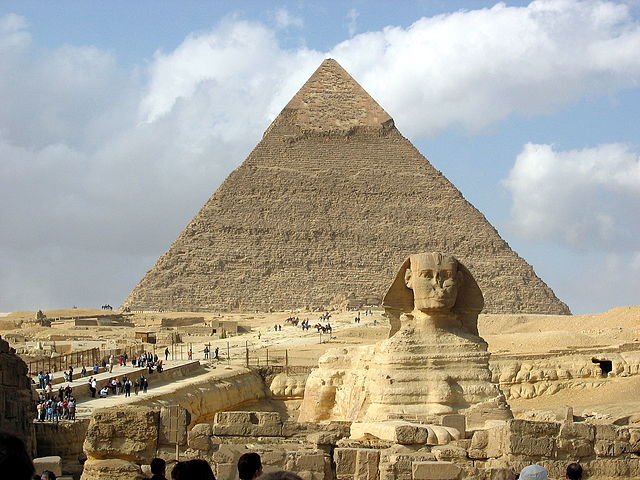(Also check out Origins of Alcohol Part 2)
Today, let’s explore a area that most people will be much more familiar with through popular culture – Ancient Egypt! The Ancient Egyptians were a remarkable and interesting people; Ancient Egypt is one of six known civilizations to have arisen “independently” by historians. I find that terminology a bit silly of course, because very few groups have ever been truly independent from outside influence. Nevertheless, the rise of Dynastic Egypt from previously disparate cultural groups along the Nile created one of the most complex societies of the ancient world, over 2000 years before Ancient Greece, coalescing around 3,000BCE.

Scholarly, we define civilization by the presence of things like writing, cities, an ordered society with social hierarchy, the widespread use of agriculture, public buildings, the working of metals, and the building of monuments; though not necessarily including all of these things. This puts Egypt along with Mesopotamia, the Indus Valley, China, the Central Andes, and Mesoamerica, as one of the “cradles” of civilization.
Of course, no rise of civilization would be complete without alcohol! It turns out the Egyptians drank a lot of alcohol, and I mean a lot. The Egyptian city of Hierakonpolis (Nekhen  ) actually contains the remains of the world’s oldest brewery – and it was capable of churning out about 300 gallons (1100 litres) of beer per day. The site lay in the centre of what would have been an industrial district. It contains large ceramic vats set into a mud platform that would have been filled with ingredients and heated, to be kept at a warm temperature for fermentation; the recipe wasn’t too complicated, utilizing malted and crushed emmer wheat, a small component of barley, and the addition of a sweetener such as dates, grapes, or honey. Just like our friends in Sumer and China, the Egyptians liked their alcohol sweet.
) actually contains the remains of the world’s oldest brewery – and it was capable of churning out about 300 gallons (1100 litres) of beer per day. The site lay in the centre of what would have been an industrial district. It contains large ceramic vats set into a mud platform that would have been filled with ingredients and heated, to be kept at a warm temperature for fermentation; the recipe wasn’t too complicated, utilizing malted and crushed emmer wheat, a small component of barley, and the addition of a sweetener such as dates, grapes, or honey. Just like our friends in Sumer and China, the Egyptians liked their alcohol sweet.
The site could also have been used for the production of porridge and bread, but if we assume that the residues found are indicative of the typical daily production, then how many people were they feeding? It turns out that beer was of central importance in Egyptian society. Wages were often paid in alcohol, and the daily ration for a worker would include 2-3 litres of beer. So this brewery was providing the alcohol for 550 people every single day!
The Egyptians did typically drink every day. We have records that indicate the workers at Giza for example, actually received three rations of beer per day as part of their wages, drinking it at breakfast, lunch, and dinner, for about 6-9 litres of intake every single day. How they still managed to construct the pyramids after that, I’m not quite sure. Egyptian alcohol was of a lower alcohol content than modern day beverages, at about 3-4% alcohol – but I don’t think I’d be comfortable scaling a 150m structure after 9 litres of light beer.
Like in Sumer, alcohol was considered divine, and was often part of religious ceremonies and rituals, especially wine. The Egyptians believed that they were taught how to brew by the god Osiris. When we see pictographic depictions of breweries from Egypt, we also see women grinding the flour and tending to the vats. If you recall the Sumerians, they believed that brewing was given by the goddess Ninkasi, and alcohol was prepare domestically by the women of the house. It would appear that the Egyptians were influenced by the Sumerians when it came to alcohol lore and social norms. As their civilization developed however, and alcohol production became industrialized, it appears that men took over the bulk of the brewing process.

Beer also played a role in the myth of the birth of the Egyptian goddess Hathor, which became associated with benevolence and gratitude. We find an inscription from 2,200BCE at Dendera that says:
“The mouth of a perfectly contented man is filled with beer”
Some scholars actually believe that part of the reason Queen Cleopatra VII lost popularity in the waning years of her reign during the wars with Rome was actually more due to the tax she imposed on beer (which was the first ever in Egyptian history) rather than the failing war with Octavian and Agrippa. I would love to go into more detail about Egyptian wine, and the Egyptian medical uses of alcohol, and religious ceremonies, but I think that’s enough for today!
– D